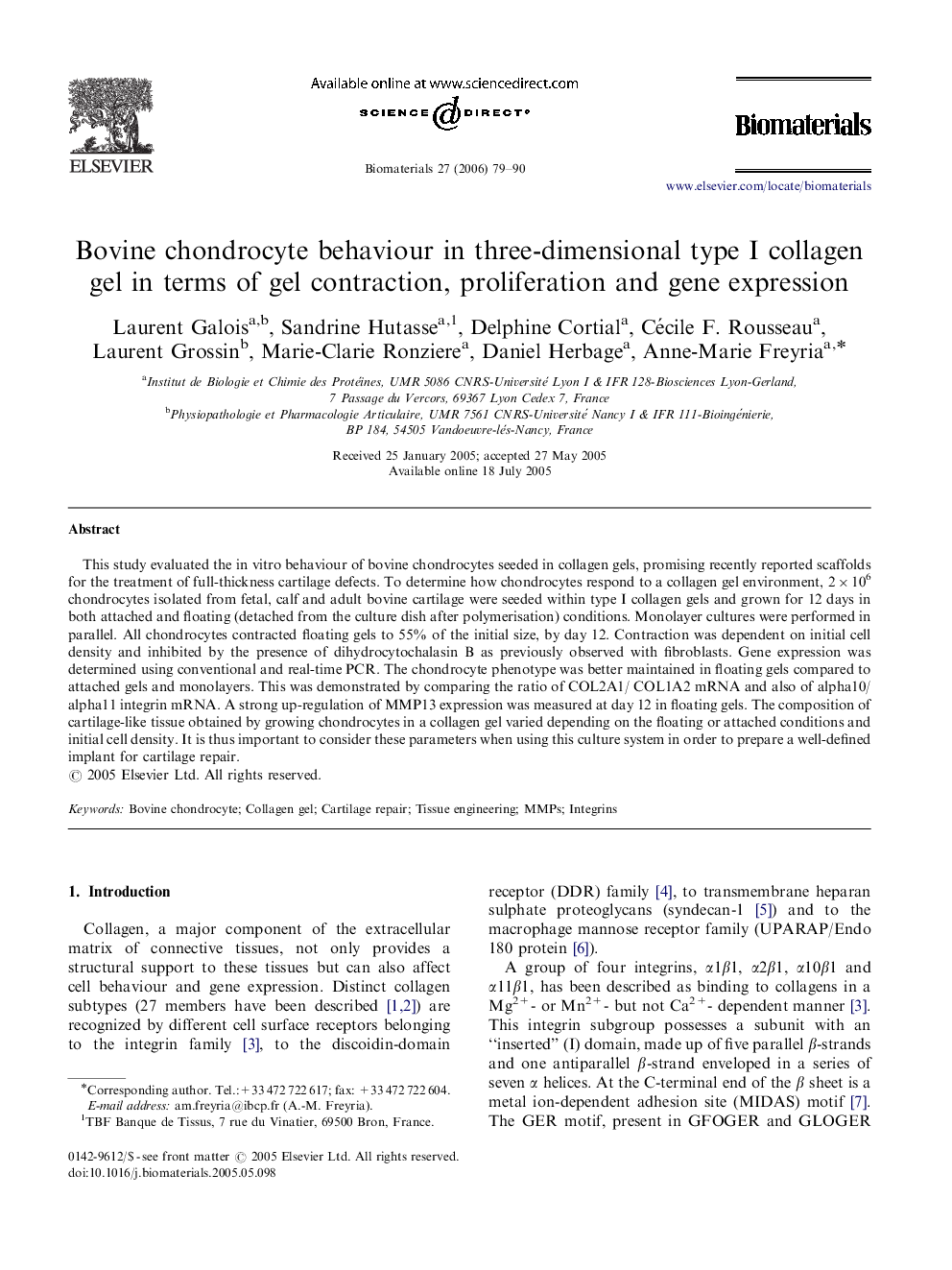| Article ID | Journal | Published Year | Pages | File Type |
|---|---|---|---|---|
| 11858 | Biomaterials | 2006 | 12 Pages |
This study evaluated the in vitro behaviour of bovine chondrocytes seeded in collagen gels, promising recently reported scaffolds for the treatment of full-thickness cartilage defects. To determine how chondrocytes respond to a collagen gel environment, 2×106 chondrocytes isolated from fetal, calf and adult bovine cartilage were seeded within type I collagen gels and grown for 12 days in both attached and floating (detached from the culture dish after polymerisation) conditions. Monolayer cultures were performed in parallel. All chondrocytes contracted floating gels to 55% of the initial size, by day 12. Contraction was dependent on initial cell density and inhibited by the presence of dihydrocytochalasin B as previously observed with fibroblasts. Gene expression was determined using conventional and real-time PCR. The chondrocyte phenotype was better maintained in floating gels compared to attached gels and monolayers. This was demonstrated by comparing the ratio of COL2A1/ COL1A2 mRNA and also of alpha10/alpha11 integrin mRNA. A strong up-regulation of MMP13 expression was measured at day 12 in floating gels. The composition of cartilage-like tissue obtained by growing chondrocytes in a collagen gel varied depending on the floating or attached conditions and initial cell density. It is thus important to consider these parameters when using this culture system in order to prepare a well-defined implant for cartilage repair.
